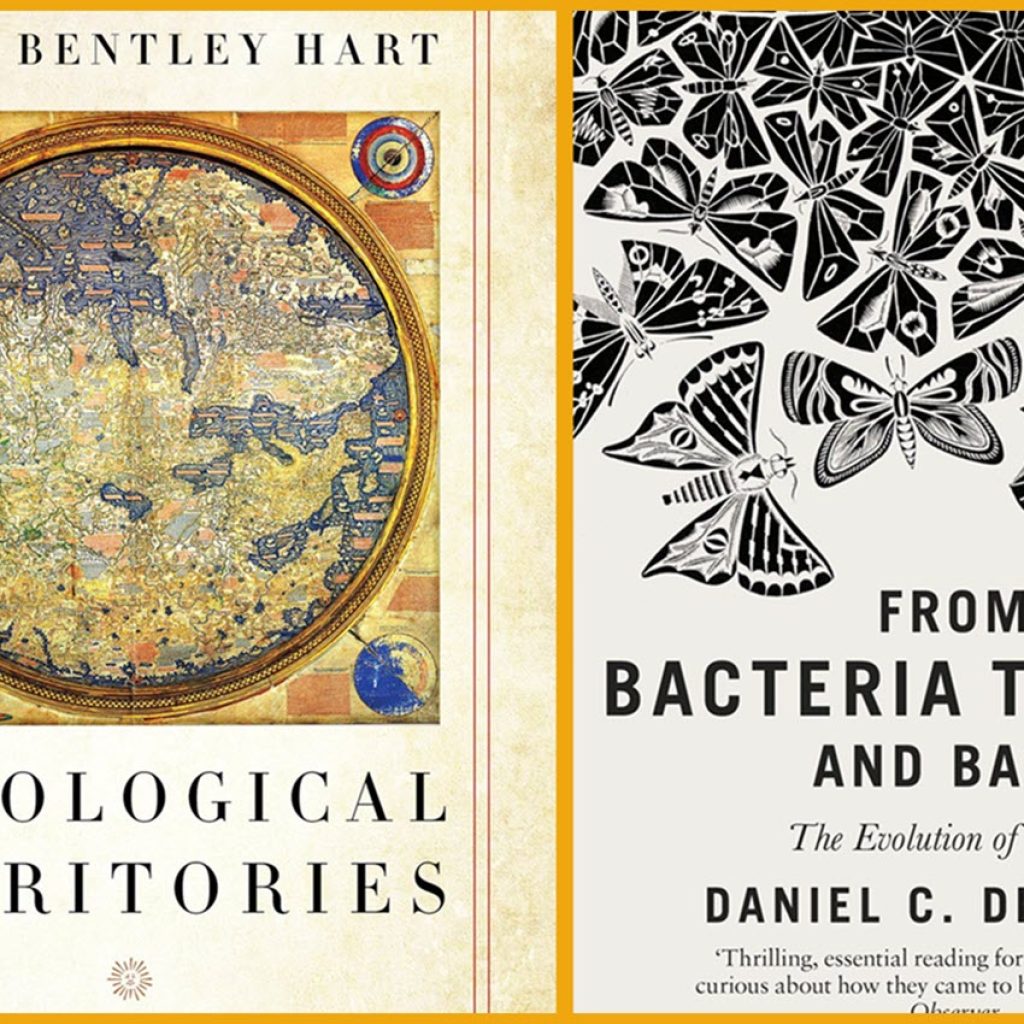“….happy is the one who seizes your infants and dashes them against the rocks..…”
“The Cursings” is the title of a chapter in the book “Reflections On The Psalms” by C.S. Lewis. It is a helpful chapter in exposing some fallacious treatments of the Psalms as if they exist in a vacuum void of Scripture’s Metanarrative.
PART 1 OF 2
Regarding appeals to the harsh language of Psalms 137 (and Etc.) in this or in any other context, the Non-Theist’s intellectually vacuous treatment of Hate & Ruin within the Human Metanarrative […by quoting Psalms “as-if” a verse is God speaking & Etc…] is thoroughly exposed in “Reflections on the Psalms” by C.S. Lewis. A brief excerpt:
First meanings:
“……What must be said, however, is that the Psalms are poems, and poems intended to be sung: not doctrinal treatises, nor even sermons. Those who talk of reading the Bible “as literature” sometimes mean, I think, reading it without attending to the main thing it is about; like reading Burke with no interest in politics, or reading the Aeneid with no interest in Rome. That seems to me to be nonsense. But there is a saner sense in which the Bible, since it is after all literature, cannot properly be read except as literature; and the different parts of it as the different sorts of literature they are. Most emphatically the Psalms must be read as poems; as lyrics, with all the licenses and all the formalities, the hyperboles, the emotional rather than logical connections, which are proper to lyric poetry. They must be read as poems if they are to be understood; no less than French must be read as French or English as English. Otherwise we shall miss what is in them and think we see what is not………”
And then of course onto and into second meanings:
“……..I must now turn to something far more difficult. Hitherto we have been trying to read the Psalms as we suppose— or I suppose— their poets meant them to be read. But this of course is not the way in which they have chiefly been used by Christians. They have been believed to contain a second or hidden meaning, an “allegorical” sense, concerned with the central truths of Christianity, with the Incarnation, the Passion, the Resurrection, the Ascension, and with the Redemption of man. All the Old Testament has been treated in the same way. The full significance of what the writers are saying is, on this view, apparent only in the light of events which happened after they were dead……”
Some of this is from https://derekzrishmawy.com/2015/12/05/really-elisha-bears-attacking-children-this-is-why-we-cant-have-nice-things/comment-page-1/#comment-50087 and also that thread’s reference to https://bible.org/seriespage/15-life-and-times-elisha-prophet-elisha-s-accreditation-2-kings-219-327 – Here’s an excerpt:
“Do we really think that God indiscriminately pours out his wrath on “innocent little children”? It was Jonah who lacked compassion toward the innocent, and God who refused to punish those who were not yet accountable for their actions (who “did not know their right hand from their left”) – “…10 The LORD said, “You have compassion for the plant, something that you have not worked over nor made to grow, a thing that lasted a night and perished after a night. 11 Now should not I have compassion for the great city of Nineveh, in which there are more than one hundred twenty thousand people who do not know their right from their left, besides many animals?” (Jonah 4:10-11, emphasis mine).”
We must do the hard work of defining the OT’s ontological landscape by defining all lines vis-à-vis the wider canopy of Scripture’s entire metanarrative. It is a peculiar reality that Scripture both affirms God’s hatred for divorce even as Scripture affirms God’s permitting divorce and also regulating various steps amid divorce inside of the Law, in Moses, which Scripture defines as the Ministry of Death. To just “stop” inside of the Law, to just “stop” inside of the Psalms, and to jettison the obvious implications of C.S. Lewis’ statements upon any and all analysis – to jettison the Psalms wherein the child is deemed fashioned by God from the womb onward – to employ bits and quarters and fragments and thirds and halves and never the Seamless Whole – and also – to leave one’s analysis void of the extreme ontic-definitions of Man and of God’s full and final decree which are forced upon us by Genesis 3’s Protoevangelium and of such in and by Christ is to wrongly perceive reality, to misinterpret the entirety of those uncanny interfaces between The Adamic and the immutable love of the Triune God.
The Cruciform Hermeneutic
“There’s simply no reason to think the cruciform hermeneutic (reading Scripture through the lens of the cross) applies only to the Old Testament. If we truly believe the cross is the quintessential revelation of what God is *really* like, as I do, then the cross must serve as our interpretive lens *whenever* and *wherever* we see, or believe we see, God in action. Knowing that God’s true character looks like Jesus voluntarily dying on the cross for his enemies, we will always know that something else is going on if God appears to act in ways that are contrary to this enemy-loving, non-violent character.” (…by G. Boyd…)
God commands in Sinai that which sums to far less than His Own Self-Outpouring whereby we who sin, daily, excluding none of us, are found alive in Him – God commands in Sinai far less than His Will for the proverbial Everyman. The Cruciform Lens brings into focus the fountainhead of all definitions as Death in Sinai is Far Less than the Full and Final Decree of *GOD*. Therein we begin to discover the (..factual, ontic…) Why and How of the proverbial Everyman – of the proverbial John Newton – of we who sin daily – excluding none of us – being found alive and well in God, in Christ, intentionally embraced there (…see http://disq.us/p/1wq0mgr which opens with “Sourcing All Definitions — The Cruciform Lens” ….).
PART 2 OF 2
The Non-Theist’s intellectually vacuous treatment of Hate & Ruin within the Human Metanarrative […by quoting Psalms “as-if” a verse is God speaking & Etc…] is easily exposed → Scripture’s “Genre“? Scripture as “Divine Communique”? →
1 – http://disq.us/p/1tem7fk
2 – http://disq.us/p/1te6iow
3 – http://disq.us/p/1w9tzo
4 – http://disq.us/p/1l4fj1x3
5 – http://disq.us/p/1huir6c
6 – Transposition: http://edwardfeser.blogspot.com/2015/05/lewis-on-transposition.html
7 – Basic Ontology 101 → http://disq.us/p/1wq1j3h
8 – Non-Totalitarian Metanarrative → http://disq.us/p/1wq52v5
Begin Excerpt:
You said the Christian is a sort of “…master of confusion…”
It’s your limited, uninformed, and anemic conceptual framework finding some things confusing. We can look at your beliefs there with respect to, say,
[A] The ontological continuum of causal ecosystems and intentionally manipulating nature’s fundamental particles.
[B] Ancient conceptual frameworks.
A few basic examples:
[1] With respect to the ontological continuum of “being-itself”, causal ecosystems, and intentionally manipulating nature’s fundamental particles you really do believe that it is physically impossible to go to the moon or to suspend an object on top of water, and, also,
[2] with respect to intentionally manipulating nature’s fundamental particles you really do believe that it is physically impossible to regenerate neurons and neuronal pathways in paralysis, and, also,
[3] with respect to intentionally manipulating nature’s fundamental particles you really do believe it is physically impossible to fashion brand new elements which never before existed.
[4] With respect to ancient conceptual frameworks you really do believe that all points of syntax spanning all conceptual frameworks in fact reference the very same ceiling with respect to denotation on the one hand and ontological means on the other hand, and, also,
[5] with respect to ancient conceptual frameworks you really do believe that all points of syntax spanning all conceptual frameworks in fact reference the very same ceiling with respect to denotation on the one hand and ontological ends on the other hand.
Those evidence-free beliefs of yours lead you into misguided modes of interpreting not only our experienced reality through time as human beings but of course also the unavoidable variations of descriptions of that experienced reality occurring across and beneath differing conceptual ceilings through time. All of that cumulatively stifles your analytical range.
Whereas, the Christian is forever open to new data points as they come streaming in. Temporal beginning? No problem. No temporal beginning? No problem. Molecules to Body? No problem. Immaterial else absurdity? No problem. Brutally repeatable moral experience? No problem. The irreducible self? No problem. Logic’s lucidity over forced absurdity? No problem. Intelligibility/reality? No problem.
Such intellectual liberty to follow all modes of all evidence wherever said evidence may lead is refreshing.
Fortunately technology has greatly increased our ability to rapidly cross-reference [1] large numbers of scientific observations and [2] large numbers of documents and texts which cumulatively span thousands of years. Such technologies have helped us to more accurately map necessary and unavoidable topographic features of the ontological history of becoming vis-à-vis both Cosmos and Conscious Observer.
End Excerpt.
Modern Theology and Biblical Criticism – by C.S. Lewis
“If he tells me that something in a Gospel is legend or romance, I want to know how many legends and romances he has read, how well his palate is trained in detecting them by the flavor…… I have been reading poems, romances, vision literature, legends, and myths all my life. I know what they are like. I know none of them are like this……” (C.S. Lewis)
That is a brief excerpt of C.S. Lewis from http://lewisonbiblicalcriticism.blogspot.com/ and is titled Modern Theology and Biblical Criticism. Note it is accessible widely on the internet and the PDF is about 6000 words.
The following several paragraphs are two excerpts from the following two sources:
A — C.S. Lewis On The OT and NT – from http://www.cslewis.com/lewis-bible-new-old-testaments/
B — C.S. Lewis and “Talking Up” Scripture vis-à-vis Reflections On The Psalms – from http://www.cslewis.com/taking-up-scripture-reflections-on-the-psalms/
Here is the first of those two – C.S. Lewis On The OT and NT:
We know C.S. Lewis has a high opinion of the Bible. What is less cited are specific references that Lewis calls out in poetic and theological language, through his stories, his essays, and most certainly his letters. In a series of entries simply titled “Lewis and the Bible”, I hope to bring out several examples of Lewis’s belief in the inspired Word of God as well as his more nuanced ideas. One note to remember: Lewis never claims any “theologian” status, so his approach to Scripture is more pedestrian and, because of his academic interests, more poetic and literary than some.
Let’s start with Lewis’s idea of the Bible generally. In his essay “God in the Dock”, Lewis ties in the Old and New Testaments with the revelation we know in Jesus:
The Bible can be divided into two parts – the Old and the New Testaments. The Old Testament contains fabulous elements. The New Testament consists mostly of teaching, not of narrative at all: but where it is narrative, it is, in my opinion, historical. As to the fabulous element in the Old Testament, I very much doubt if you would be wise to chuck it out. What you get is something coming gradually into focus. First you get, scattered through the heathen religions all over the world – but still quite vague and mythical – the idea of a god who is killed and broken and then comes to life again. No one knows where he is supposed to have lived and died; he’s not historical. Then you get the Old Testament. Religious ideas get a bit more focused. Everything is now connected with a particular nation. And it comes still more into focus as it goes on. Jonah and the Whale, Noah and his Ark, are fabulous; but the Court history of King David is probably as reliable as the Court history of Louis XIV. Then, in the New Testament the thing really happens. The dying god really appears – as a historical Person, living in a definite place and time. If we could sort out all the fabulous elements in the earlier stages and separate them from the historical ones, I think we might lose an essential part of the whole process.
In the “Weight of Glory”, he sums up what Scripture provides:
The promises of Scripture may very roughly be reduced to five heads. It is promised (1) that we shall be with Christ; (2) that we shall be like Him; (3) with an enormous wealth of imagery, that we shall have “glory”; (4) that we shall, in some sense, be fed or feasted or entertained; and (5) that we shall have some sort of official position in the universe—ruling cities, judging angels, being pillars of God’s temple.
What is nice about Lewis’s perspective is it never neglects the meta-narrative. Theologically, the relationship of God with his creation is categorized in (1) creation; (2) the fall; (3) redemption; (4) and restoration. Stories and prophecies weave together to form the reality of God’s working through these broad stroke categories. In his essay “Is Theology Poetry?”, Lewis puts some notes into this song of God, some poetry into these theological groupings.
From things like Noah’s Ark or the sun standing still upon Ajalon, you come down to the court memoirs of King David. Finally you reach the New Testament and history reigns supreme, and the Truth is incarnate. And “incarnate” is here more than a metaphor. It is not an accidental resemblance that what, from the point of view of being, is stated in the form “God became Man”, should involve, from the point of view of human knowledge, the statement “Myth became Fact”. The essential meaning of all things came down from the “heaven” of myth to the “earth” of history. In so doing, it partly emptied itself of its glory, as Christ emptied Himself of His glory to be Man. That is the real explanation of the fact that Theology, far from defeating its rivals by a superior poetry, is, in a superficial but quite real sense, less poetical than they.
That is why the New Testament is, in the same sense, less poetical than the Old. Have you not often felt in Church, if the first lesson is some great passage, that the second lesson is somehow small by comparison – almost, if one might say so, hum-drum? So it is and so it must be. This is the humiliation of myth into fact, of God into Man: what is everywhere and always, imageless and ineffable, only to be glimpsed in dream and symbol and the acted poetry of ritual, becomes small, solid – no bigger than a man who can be asleep in a rowing boat on the Lake of Galilee. You may say that this, after all, is a still deeper poetry. I will not contradict you. The humiliation leads to a greater glory. But the humiliation of God and the shrinking or condensation of the myth as it becomes fact, are also quite real.
End.
Here is the second of the two – C.S. Lewis and “Talking Up” Scripture vis-à-vis Reflections On The Psalms –
Many Christians can undoubtedly remember their discomfort upon first encountering invective language in the Psalms, their incredulity at the occasional self-righteousness of the Psalmists, or a general sense of confused wonderment at the Old Testament and how it is interpreted by the Church.
Despite the wide range of reasonable explanations available to them, some Christians nevertheless often wonder how the apparent short-comings they perceive in the Old Testament can be reconciled with their deeply held belief that the Bible is the inspired Word of God. C.S. Lewis, everyman that he was, experienced the same difficulties and decided to write down his thoughts in an engaging little book called Reflections on the Psalms. Although not everyone will agree with his approach, which he is careful to note should not be taken as informed scholarship (Note 1 below), Lewis’s response to these difficulties is characteristically honest, intelligent, accessible, and, in many ways, comforting.
Lewis almost certainly recognized the risk of writing an analytical study of the Bible. The Book of Psalms, in particular, is one of the most celebrated and well known books in the Old Testament and a fixture in the liturgical practices of nearly all Christians. The danger of misinterpretation, misuse, or injury is therefore, in some sense, higher for Reflections on the Psalms than for most of his other popular religious works. This risk, however, is not a deterrent for Lewis, who does not shy away from offering pointed criticism of the Psalms.
In the chapter on cursings, for example, he uses words like “diabolical,” “terrible,” and “contemptible” to describe passages from Psalms 109 and 143 that valorize vengeance, infanticide, and other cruelties (20-1). Most readers who object to this description, however, would be hard-pressed to refute it. Those who do not object and are troubled by its accuracy are likely tempted, as Lewis initially is, to “leave them [the cursing Psalms] alone” (22). Yet, Lewis deftly argues that we cannot deny the malice of these curses, nor can we justify or agree with them because they are in the Bible; instead, we can learn from them about our own inclinations towards hatred, the moral effect our actions can have on others, the distinguishing moral character of the Jewish people that allowed them to experience the temptation to hate (i.e. “they took right and wrong more seriously”), and God’s righteous intolerance for sin (20-33).
Why, however, might some object to this reading and others not? The answer is bound up in how Christians understand and relate to the Bible. The “Chicago Statement on Biblical Inerrancy,” a doctrinal statement by an assembly of Protestants written in 1978, describes the Bible as “infallible” and “inerrant,” the latter of which means “the quality of being free from all falsehood or mistake and so safeguards the truth that Holy Scripture is entirely true and trustworthy in all its assertions.” The Catechism of the Catholic Church says much the same thing: “the books of Scripture firmly, faithfully, and without error teach that truth which God, for the sake of salvation, wished to see confided to the Sacred Scriptures.” Both of these documents speak at length about the central, undeniable authority and importance of Scripture in the Christian life, revealing precisely why criticism of the Bible may be threatening to some. (Note 2 & 3 below) Lewis’s assertion that the Old Testament sometimes displays “[n]aïvety, error, contradiction, even… wickedness” quickly dispels any notion that he might have believed the entire Bible to be inerrant in a doctrinal sense, but throughout all of his writing Lewis does affirm the Bible’s divine inspiration, its importance, and its authority (111).
Lewis’s view of Scripture, specifically the Old Testament, rests on many of the core ideas that span his writing, most important of which is his understanding of myth and its role in Christian revelation. (Note 4 below) Too large a topic to address in detail here, it is enough to say that Lewis saw in the old pagan myths a divinely inspired foreshadowing or anticipation of Truth that is actualized by and through Christ’s historical experience on Earth. Lewis applies this same basic principle to the writings of the Old Testament. It is “no difficulty” for him to accept “that the account of Creation in Genesis is derived from earlier Semitic stories which were Pagan and mythical,” because he accepts a positive view of derivation that is highly creative, additive, and directed by God (110)
Thus something originally merely natural—the kind of myth that is found among most nations—will have been raised by God above itself, qualified by Him and compelled by Him to serve purposes which of itself it would not have served. Generalising this, I take it that the whole Old Testament consists of the same sort of material as any other literature—chronicle (some of it obviously pretty accurate), poems, moral and political diatribes, romances, and what not; but all taken into the service of God’s word. … The total result is not “the Word of God” in the sense that every passage, in itself, gives impeccable science or history. It carries the Word of God; and we (under grace, with attention to tradition and to interpreters wiser than ourselves, and with the use of such intelligence and learning as we may have) receive that word from it not by using it as an encyclopedia or an encyclical but by steeping ourselves in its tone or temper and so learning its overall message. (111)
Lewis shows that this practice of divine “up-grading” is a recurring theme in God’s interaction with mankind, manifest most significantly in the Incarnation, when “human life becomes the vehicle of Divine Life” (116). In the same way the “Old Testament is a literature thus ‘taken up,’ made the vehicle of what is more than human” (117). Understood in this context, the “shadows” of the cursings, when “taken up,” reveal “something more about the light” than any systematic explanation of morality could, confirming, rather than refuting, the divine purpose at work behind the Scriptures (114).
Although Lewis was not a strict inerrantist, his views on Scripture have far more in common with traditional, orthodox beliefs than with any modern, liberal notions that deny the Bible’s sacredness, divine inspiration, or authority. If nothing else, he uniformly affirms that the spiritual Truth conveyed by the Bible is without error. In Reflections on the Psalms, Lewis proves this conviction by presenting a way of reading Scripture that accepts the human aspects of its authorship without diluting its inherently divine nature and purpose.
End.
See Also:
The Divine Command Theory Collapses Into A Metaphysical Absurdity — at https://metachristianity.com/divine-command-theory-collapses-into-a-metaphysical-absurdity/ (….and see Scripture’s© Singular® Metanarrative© & Its Thematic® Lines© — which is at the end of it…..)
Wasn’t There Pain & Suffering In Egypt’s First Born? as per https://metachristianity.com/wasnt-there-pain-suffering-in-egypts-first-born/






No comment yet, add your voice below!